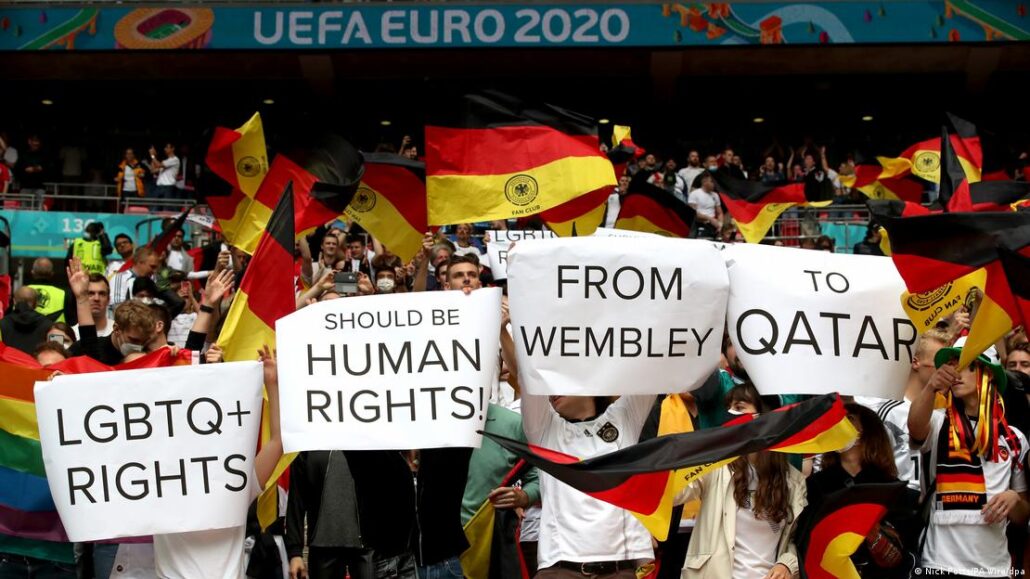
As part of their efforts to attract tourists, Saudi Arabia is reportedly targeting a potentially lucrative market by extending a welcome to LGBTQ visitors, CNN reported.
The Q&A section on the website of the Saudi Tourism Authority has been updated to indicate that gay tourists are allowed in the country.
The website said, “Everyone is welcome to visit Saudi Arabia and visitors are not asked to disclose such personal details,” is the website’s response to the question on its FAQ page: “Are LGBT visitors welcome to visit Saudi Arabia?”
The exact date of the update to the Saudi Tourism Authority’s website is unclear. A representative for the organization stated that the policy had already been in effect, however, CNN reported that an archived version of the website from March 14, 2023 and earlier did not include the question and answer related to LGBTQ visitors.
Human Rights Watch reports that same-sex sexual activity is considered a criminal offense in Saudi Arabia. Meanwhile, the Human Dignity Trust, which advocates for the rights of LGBTQ individuals globally, states that transgender people are also at risk of prosecution in the country. The organization notes the presence of “substantial evidence of the law being enforced” and reports of ongoing discrimination and violence against LGBTQ individuals in Saudi Arabia.
Darren Burn, who serves as the CEO of Out Of Office, a luxury travel planning service catering to the LGBTQ+ community, and Travel Gay, which is the largest LGBTQ+ travel platform worldwide, believes that LGBTQ+ travelers represent a lucrative market.
“Research shows they spend more money in a destination than heterosexual couples, and tend to travel more times a year,” he told CNN.
“It’s a very interesting and lucrative demographic, and countries are plowing major revenue into [attracting] it.”
A gay individual who visited Saudi Arabia for work in October 2022, prior to the update of the website welcoming LGBTQ+ visitors, told CNN that he experienced feelings of being “in the closet” during his stay.
The traveler, who is from the UK and preferred to remain anonymous, visited AlUla, which is one of the tourism-oriented destinations in Saudi Arabia.
“It was OK for a week or so but after that I suddenly realized it gone back to living a life in the closet and not being my true self. More out of fear of what might happen – the unknown – rather than anything specific that happened,” he said.
“I was sent an email [by the company I was working for] with what I should do. They basically told me to delete anything even remotely LGBTQI related from my phone – all photos, apps, newspapers and magazines. My Egyptian friend suggested I just get a new clean phone.
“I told close colleagues, but I wasn’t [generally] talking about being gay, or my past experience. I kept it to myself, and suddenly realized that I wasn’t able to talk about what I would normally talk about, and that’s not how I want to live. In practice everyone was very relaxed, but the law’s the law.”
Saudi Arabia is directing its efforts towards expanding its tourism industry, with a focus on attracting enthusiasts of archaeology to destinations like AlUla, which boasts ruins that have remained untouched for nearly 2,000 years. The country is also developing entirely new cities as part of its strategy to appeal to visitors.
CNN’s Richard Quest, who visited in September 2022, wrote that: “I have seen countries change before, but I don’t think I’ve ever seen anything quite like the change taking place in Saudi Arabia. Saudi’s change is deliberate, deep-reaching and dramatic.” He also flagged its “contradictions,” however – after his visit, 81 people were executed in a single day.
According to human rights researcher Nora Noralla, Saudi Arabia is emulating Qatar and Dubai in its efforts to draw in LGBTQ+ tourists. However, she cautioned that the country may not necessarily accommodate these travelers according to their own preferences or requirements.
“In Dubai there are a lot of gay influencers, and as long as you understand the context of the area you’re in and respect the traditional culture and not show your queerness in any way, you’re OK,” she said.
“That requires you to be cis-passing. If you show up and you’re non-binary, or male with makeup on, or obviously trans, and come to the region you’ll be denied entrance. I wouldn’t say LGBT people are welcome – they say same-sex couples are welcome, and that’s entirely different.”
Nora Noralla also cautioned that the privileges afforded to wealthy tourists may not be extended to others. She explained that LGBTQ+ residents of Saudi Arabia are aware of the boundaries they can push based on their economic and social background, and understand the risks involved in engaging in such activities. She further added that the move to welcome LGBTQ+ tourists is primarily aimed at Western travelers.
“They’re trying to copy the Dubai model so they can get some of their money. There’s a lot of competition [for money]. If you’re a cis, gay Westerner you’re welcome. If you’re trans and cis-passing, you’re welcome. But anything that remotely shows your queerness, you’re not. And I think if anyone crosses a line, they will definitely act swiftly.”
